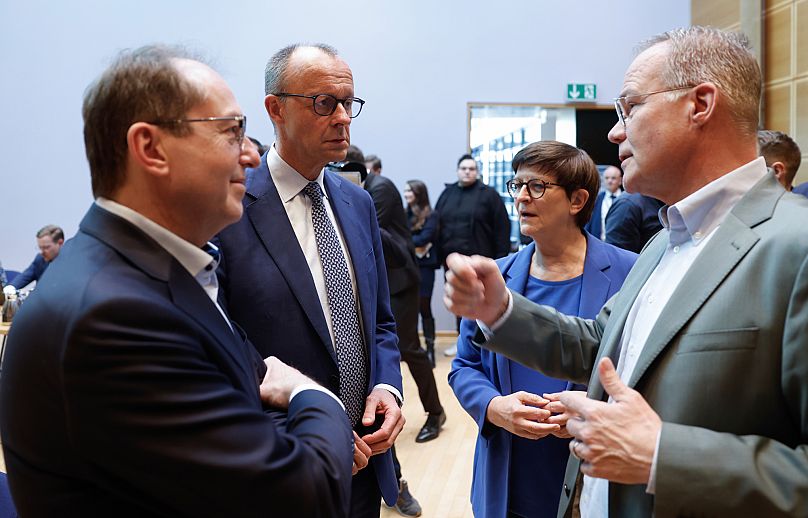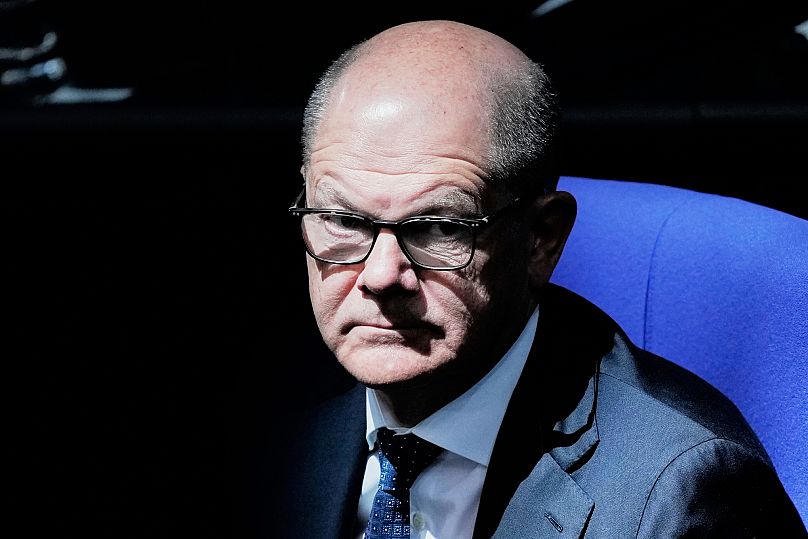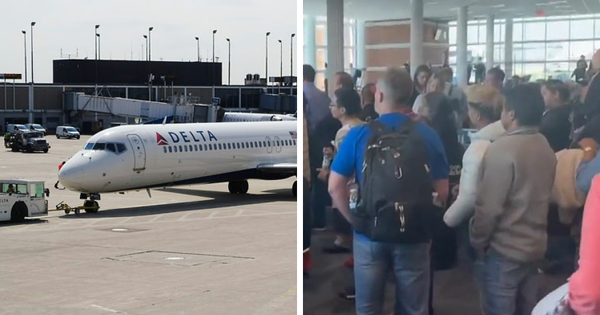Conservative and centre-left parties in Germany have reached a deal to form a new government after weeks of negotiations, paving the way for new leadership in Europe's biggest economy after months of political limbo.
Friedrich Merz, the leader of the centre-right Christian Democratic Union (CDU), is expected to become Germany's next chancellor under the agreement, replacing Olaf Scholz.
Merz's two-party Union bloc emerged as the strongest force from Germany's February federal elections.
Merz turned to the Social Democrats, Scholz's centre-left party, to put together a coalition with a parliamentary majority.

Which party will control which ministry?
Merz will see his CDU party control the country's major ministries, including the Foreign Ministry, Ministry for Economic Affairs, and Health Ministry.
The CDU will also control the Federal Chancellery, the agency which serves the executive office of the chancellor.
The CDU's sister party, the CSU, will take control of the Interior Ministry, the Ministry of Education and the Ministry of Food and Agriculture.
Coalition partner the SPD will run seven federal ministries, including the Finance Ministry, Justice Ministry, Defence Ministry, and Ministry of Labour and Social Affairs.
Some key ministerial appointments have also been announced with the SPD's Lars Klingbeil expected to be Finance Minister, the CSU's Alexander Dobrindt being considered for the post of Interior Minister and the CDU's Johann Wadephul reportedly tapped as possible Foreign Minister.
Boris Pistorius is believed to remain in the post of Defence Minister.

Pressure from abroad and at home
Market turbulence caused by US President Donald Trump's announcement of sweeping tariffs added to pressure for Merz's Union and the Social Democrats to bring coalition talks to a swift conclusion.
The tariffs threaten to add to the woes of Germany's export-heavy economy that has shrunk for the past two years, and generating growth will be a central task for the new government.
Increasing doubts about the US commitment to European allies also played into the prospective coalition's decision to enable heftier defence spending.
Merz said last month that Germany and Europe must quickly strengthen their defence capability and that "'whatever it takes' must also go for our defence now."
Another factor in the haste to reach an agreement was a decline for the Union in the opinion polls, showing support slipping from its election showing, while the far-right Alternative for Germany (AfD), which finished a strong second in February, gained as the political vacuum persisted.
The prospective new coalition brings together what have been post-World War II Germany's traditional big parties, but the Union's election-winning performance in February was lacklustre and the Social Democrats dropped to their worst post-war showing in a national election.
Together, they have 328 seats in the 630-member lower house of parliament, the Bundestag.







